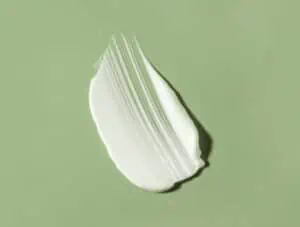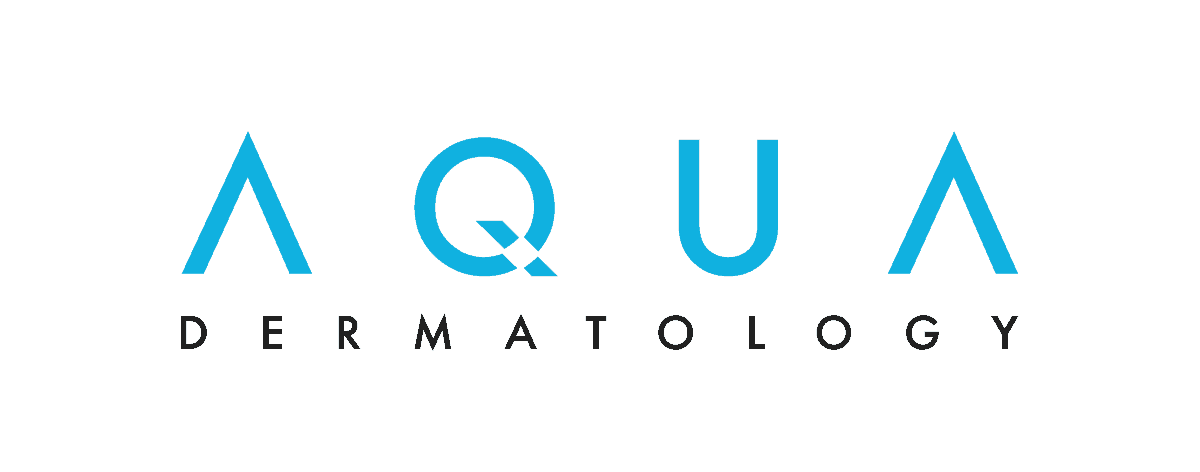
Medically reviewed by Haley Andress, PA-C
Have you heard the buzz about barrier creams? If so, you might have dismissed these products as yet another skincare item you don’t need. You’re already using moisturizer, so why would you need to add another cream to your routine? And who needs to repair a damaged skin barrier, anyway?
The answer is: plenty of people, including people with dry, sensitive skin or eczema.
“Barrier cream has real benefits, and it does more than moisturize your skin,” said Haley Andress, PA-C, a certified physician assistant at Water’s Edge Dermatology. Read on to learn why a barrier cream may be important to the health of your skin and how to find the one that’s best for you.
What is barrier cream?
A barrier cream is a cream or ointment containing several ingredients that work together to restore and repair the skin barrier. What is the skin barrier? It’s the outermost layer of skin, called the stratum corneum. Under a microscope, it resembles a brick wall. It’s made of hardy cells called corneocytes (the bricks) and fats that glue them together (the mortar).
Think of the skin barrier as your skin’s protective shell. Its job is to lock in the water your skin contains and shield you from invaders such as bacteria and environmental irritants, including chemicals, pollution and harsh weather.
“You wouldn’t be able to survive without a skin barrier,” said Andress.
Many barrier creams contain ingredients that are found naturally in the skin barrier, such as cholesterol and ceramides. They shore up the “mortar” that holds skin cells together, creating a stronger “wall” of protection.
Why would I need barrier cream?
Some people have a weakened skin barrier due to genetics. Scientists have identified a handful of gene mutations that compromise this protective shell. They may play a role in eczema and other types of dermatitis.
Washing and exfoliating your skin too often can weaken the skin barrier, as can frequent exposure to:
- Wind
- Very dry or humid weather
- Pollution
- UV rays
- Harsh chemicals, including detergents
- Irritants and allergens
Finally, stress and aging also weaken the skin barrier.
If you’re prone to skin infections, skin that is dry, itchy or scaly, or dark, rough patches, using a barrier cream might help. Barrier cream can also help reduce eczema flares.
No matter how healthy your skin is, it’s a good idea to keep barrier cream on hand. It serves other useful purposes, such as protecting against chafing caused by friction and promoting wound healing. (Don’t apply it to broken skin unless a doctor instructs you to.)
Should I also use a moisturizer?
Why would you need a barrier cream if you’re already using a moisturizer? Andress explains.
“A moisturizer addresses the symptoms of a damaged skin barrier, temporarily rehydrating the top layer of skin. The effects are short lasting,” said Andress. “A barrier cream, on the other hand, addresses the causes of those symptoms, helping to reduce dryness and irritation by strengthening the barrier that keeps moisture in and irritants out.”
Most moisturizers need to be applied multiple times per day, while barrier creams should be applied no more than once or twice a day. If you use both, be sure to apply the barrier cream on top, or use them at different times.
Finding the best barrier cream
Shopping for a barrier cream can be tricky because there isn’t always a mention of the skin barrier in the product name or description. A good barrier cream contains a combination of ingredients that includes some of the following:
- Ceramides
- Glycerin
- Hyaluronic acid
- Squalane or squalene
- Petrolatum
- Dimethicone
- Cholesterol
No matter what type of skin you have or what your needs are, there’s a barrier cream for you.
For acne-prone skin and redness caused by dry skin: Elta MD Skin Recovery Serum
Key ingredients: glycerin, dimethicone, sodium hyaluronate (a version of hyaluronic acid)
For aging skin: wederm Restorative Lipid Replenishing Cream
Key ingredients: ceramides, hyaluronic acid, squalene, cholesterol
For very dry and cracked skin: CeraVe Healing Ointment
Key ingredients: ceramides, petrolatum, hyaluronic acid, dimethicone
For adult eczema: Eczema Restoraderm Flare-Up Relief Cream
Key ingredients: Shea butter, Ceramide NP, dimethicone, glycerin
For added sun protection: La Roche-Posay Toleriane Double Repair Facial Moisturizer with SPF 30
Key ingredients: ceramides, glycerin, dimethicone
How often you use a barrier cream depends on the product and your skin type. If you have acne-prone skin, you may want to use it no more than once a day. Because it’s so thick, make it the last thing you apply in your skincare routine so it doesn’t block the effects of other, thinner products you use.
Written by Jessica Brown, a health and science writer/editor based in Nanuet, New York. She has written for Prevention magazine, jnj.com, BCRF.org, and many other outlets.





